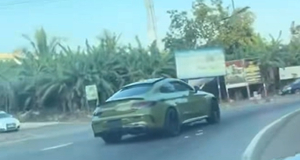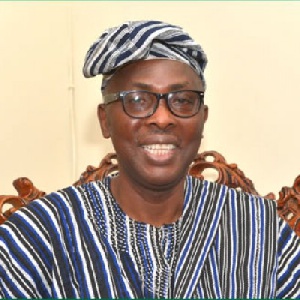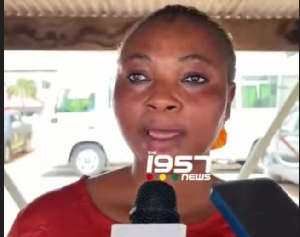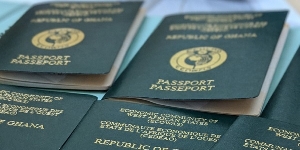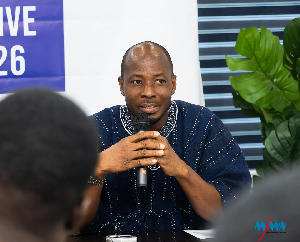By Harruna Attah
Sometime after January 7, 2017, my two and a half years tour of duty as Ghana’s High Commissioner to Namibia and Botswana would come to an end and I will head back to my homeland Ghana to pursue the other chapters of my life.
Kweku Baako, speaking on Randy Abbey’s programme on Metro TV recently, in illustrating the posts that would be up for grabs for members and supporters of the incoming administration mentioned specifically our Namibia and South Africa missions as examples. By the Presidential Transition Act 2012, all political appointees, including non-career Ambassadors and High Commissioners like myself, will have their appointments terminated as soon as a new administration is sworn in. It is a rather neat way of doing things and represents another high point of our maturing democracy.
To set the records straight, when President Mahama proposed me, he did not predicate it on NDC membership, neither did the top hierarchy of the party demand a party card from me before okaying the President’s nomination.
Similarly at the Council of State, I was not subjected to any party yardstick before approval was given. My marching orders were unequivocal: Service to Country. And because of the “Diaspora Engagement” policy of our Foreign Policy, there is very little room for any Ghanaian Head of Mission to engage in open partisan politics with compatriots abroad…
I arrived in Windhoek on a cold July 2014 morning. Though I had been warned to expect very low temperatures, it being winter in southern Africa, I had completely underrated the warning and so was hit hard in the face by a chill that nearly flew me back to Accra! There was no frost but the dry cold I felt was more biting than many of the winters I had experienced before in freezing Europe. This was Africa and yet the temperature was telling me a different story.
With diplomatic efficiency, the staff from the Mission whisked me through the airport formalities and in no time, I was on my way to take up residence in Windhoek on Dr. Kwame Nkrumah Avenue, to represent the interests of my country and the voice of my Head of State.
It all seemed so unreal. A few hours earlier, I had been in Accra, another ordinary Ghanaian citizen and here I was, now representing the honour and dignity of my country, and being accorded all the privileges reserved for very important people, representing my President.
I squirmed inwardly, not finding the words to exactly describe my emotions: fright and pride jostling for supremacy within me all the while. But the vast expanses of hills and open fields soon engaged my interest and I spent much of the drive enjoying the un-spoilt landscape of the outskirts of Windhoek…
Many people do not know that there are rules to the conduct of diplomatic representation, which have to be strictly observed to the letter. I remember when President Mahama’s nominations became public and my name was included in the list, many people kept asking me when I would be leaving. Very little is known of the Vienna Conventions, the international agreements regulating diplomatic relations among states parties. From the time of a government’s nomination of an envoy, to the time that envoy assumes office it can take anything from two to twelve months! I had to wait for about three months for my clearance to take up residence in Windhoek. In fact the host country can turn down a nominee.
My presentation of the Letters of Commission was preceded by meetings with the Namibian Chief of Protocol, and the Minister of Foreign Affairs followed by rehearsals for the presentation. Before the presentation, one is not “recognized”. You cannot drive about with your country’s flag on the car, and neither can you attend official functions.
The meeting with the Foreign Minister is meant to lighten some of these restrictions with the presentation of your “Open Letters”. With that you can be reporting to your own Mission and work in the office, but nothing more; and that is why an early presentation is most desirable. Propitiously for me, I arrived on the 20th of July and on the 23rd, the presentation ceremony took place.
State ceremonies are often very solemn and dignified affairs and none more so than the Presentation of Credentials or Commissions. One may note the slight difference between the two here: An envoy from a Commonwealth country accredited to another Commonwealth country is a High Commissioner and presents Letters of Commission, whereas the rest are Ambassadors and present Letters of Credentials.
I therefore went with my Letters of Commission, duly signed by President John Dramani Mahama and presented them to his Namibian counterpart, President Hifikepunye Pohamba. Another important document is the Letter of Recall, which officially terminates the tour of a predecessor – in my case, H.E. Major General S.A. Odotei.
Six other envoys were presenting their letters that day: from The Islamic Republic of Pakistan, The Kingdom of Thailand, The Kingdom of Lesotho, The Federal Democratic Republic of Ethiopia, The Republic of Sudan and the Republic of Burkina Faso.
These were all seasoned diplomats with residence in Pretoria, South Africa, but it fell on me, the novice, to present my letters first and also respond to the President’s remarks/toast – again, another manifestation of the rules… Because I am resident, I take precedence over the others, no matter how senior they are to me in diplomatic practice.
The presentation went very well, without any hitch but as I approached him with my Letters of Commission and my predecessor’s Letter of Recall, President Pohamba looked at me and said ‘Akwaaba’. I was so taken by surprise that my tongue could not come up with the correct Twi Akan response and all I could manage was ‘Medaase’!”
Diplomatic postings, even for career diplomats, are fairly transient. What is of permanence is the service delivered and the knowledge, the experience and networking gained during the posting. Within the two and half years of my arrival in Windhoek over ten Heads of Mission had completed their tours of duty and left for home; one left to stand elections as an MP and won her seat and so is now serving in her country’s legislature and one, like me, was recalled when the President who appointed him lost an election.
The role of a Head of Mission is no joking matter to be glossed over flippantly on radio or television. It is serious and whether at the bilateral or multilateral level, you are carrying the interest, honour and dignity of your country; it is backbreaking business. I thank President Mahama for giving me the opportunity to serve and I am very privileged to have served my country in the capacity I did these past two and a half years…I return home with pride knowing I stood well by God and Country.
PS
And oh this little post script: Non-career diplomats with media backgrounds have left their footprints in Ghana’s Foreign Service. Ambassador Kabral Blay Amihere served with distinction under President Kufuor, I am about to wind up my little bit under President Mahama. Before that our senior, Ambassador David Anaglate (GBC) served in Togo during the final administration of President Rawlings and even much earlier on, Ambassador Nicholas Alando (The Mirror) was in Saudi Arabia…
Writer's e-mail:arhattah@hotmail.com
Opinions of Saturday, 17 December 2016
Columnist: Attah, Abdul-Rahman Harruna
Serving my country: The Namibia experience
Entertainment
